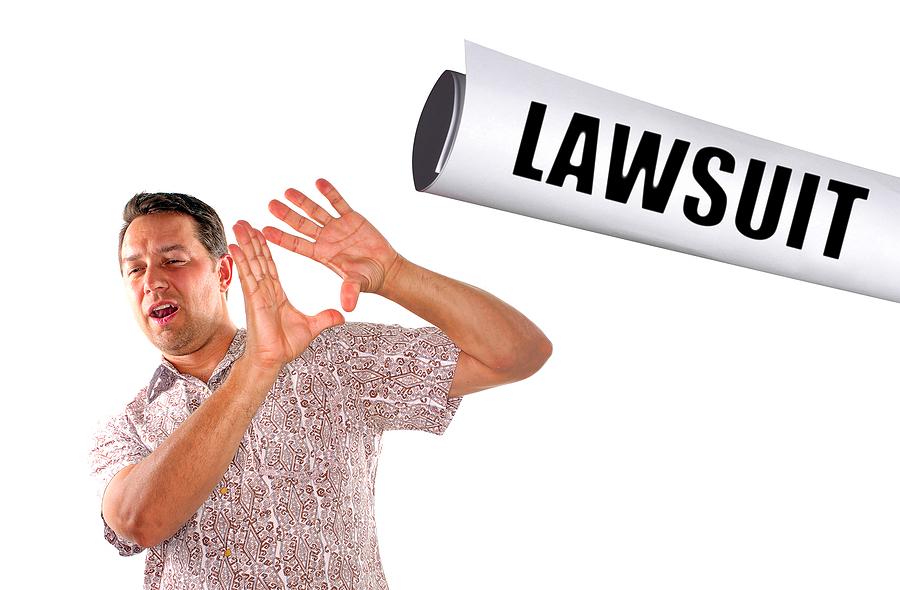Most consumers utilize a credit card at some point in their lives, and many of them carry credit card debt from month-to-month. The amount of credit card debt carried by consumers is growing. It is estimated that around 23.5 percent of all Americans struggle with some type of debt in collections status, according to the Consumer Financial Protection Bureau (CFPB), and much of this debt involves credit card debt. If a consumer is on the receiving end of a collections lawsuit for credit card debt, it is important to know how to respond.
A collections lawsuit can vary, depending on the jurisdiction, but, the steps are all fairly uniform. The first thing to expect is the consumer will receive a complaint filed in civil court, along with a summons. This summons should contain a number of important pieces of information including who is suing the consumer, whether any additional co-defendants are a part of the lawsuit, how much money the creditor is attempting to seek, which can include the balance owed, along with interest fees and legal fees, the date of the hearing, and how to file a formal answer or response to the complaint.
One important thing to keep in mind is consumers cannot go to jail for not paying credit card debt. Many debt collectors will threaten jail time to get the consumer to pay, but this is a violation of a federal law, the Fair Debt Collection Practices Act (FDCPA). As soon as the summons and complaint are received, the consumer should take a number of steps.
The first is to verify that the debt is accurate, and that the consumer does, in fact, owe the debt. The FDCPA gives the consumer the right to request verification of the debt from the creditor, and this request may be submitted in writing.
While consumers can certainly handle these types of cases on their own, it is always recommended that they consult with an attorney on how best to respond. The attorney can help the consumer negotiate a settlement outside of court, can help answer the complaint and prepare a defense, and can represent the consumer in court.
Whether an attorney is consulted, a response must be filed to the original complaint. In fact, the worst thing a consumer can do is ignore the complaint and not respond. By not filing an answer, the consumer runs the risk of receiving a default judgment, which will almost always result in garnishment of wages and an order to pay the amount in full. Time is of the essence when filing a response. The consumer may only have 30 days or less to respond to the complaint, which means all of these steps must be taken relatively quickly.
After the consumer files the response, he or she has several different options. The consumer can work directly with the other side to settle the credit card debt before the trial date. The consumer may also choose to enter a repayment plan with the creditor after speaking with a credit counselor. If the consumer does not feel that the lawsuit is warranted and does not feel that the debt is owed, he or she may choose to go to court to defend the lawsuit. If the consumer chooses this option, it is recommended that an attorney be consulted or hired to help handle the case. Lastly, the consumer always has the option to file for bankruptcy, especially if the creditor is suing on a defaulted credit card debt that the consumer does not have the financial means to pay.
As bankruptcy attorneys, we see credit card debt as one of the most common problems facing those with serious financial challenges. It is not surprising with the high interest rates, unreasonable fees, harassing debt collection calls, penalties and never-ending minimum payments that do not even make a dent in your actual debt.
Filing for bankruptcy is a viable option for those struggling with insurmountable credit card debt. Chapter 7 is the fastest form of consumer bankruptcy and forgives most unsecured debts like credit card debt, medical bills, and personal loans. There are certain qualifications a consumer must meet in regard to income, assets, and expenses to file for Chapter 7 bankruptcy, which is determined by the bankruptcy means test.
Please click here to read more.
If you have questions on this topic or are in financial crisis and considering filing for bankruptcy, contact an experienced Miami bankruptcy attorney who can advise you of all of your options. As an experienced CPA as well as a proven bankruptcy lawyer, Timothy Kingcade knows how to help clients take full advantage of the bankruptcy laws to protect their assets and get successful results. Since 1996 Kingcade Garcia McMaken has been helping people from all walks of life build a better tomorrow. Our attorneys help thousands of people every year take advantage of their rights under bankruptcy protection to restart, rebuild and recover. The day you hire our firm, we will contact your creditors to stop the harassment. You can also find useful consumer information on the Kingcade Garcia McMaken website at www.miamibankruptcy.com.

